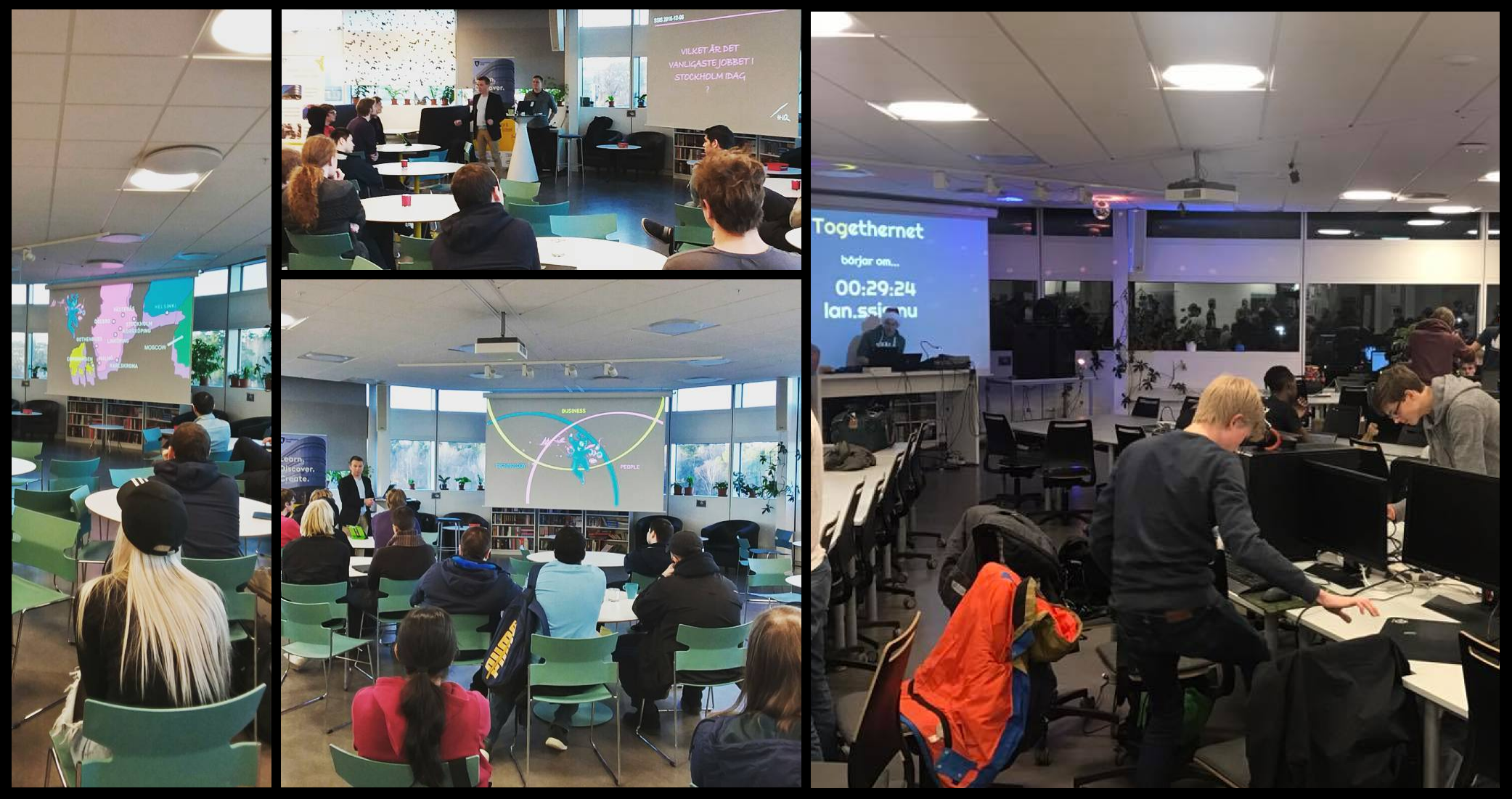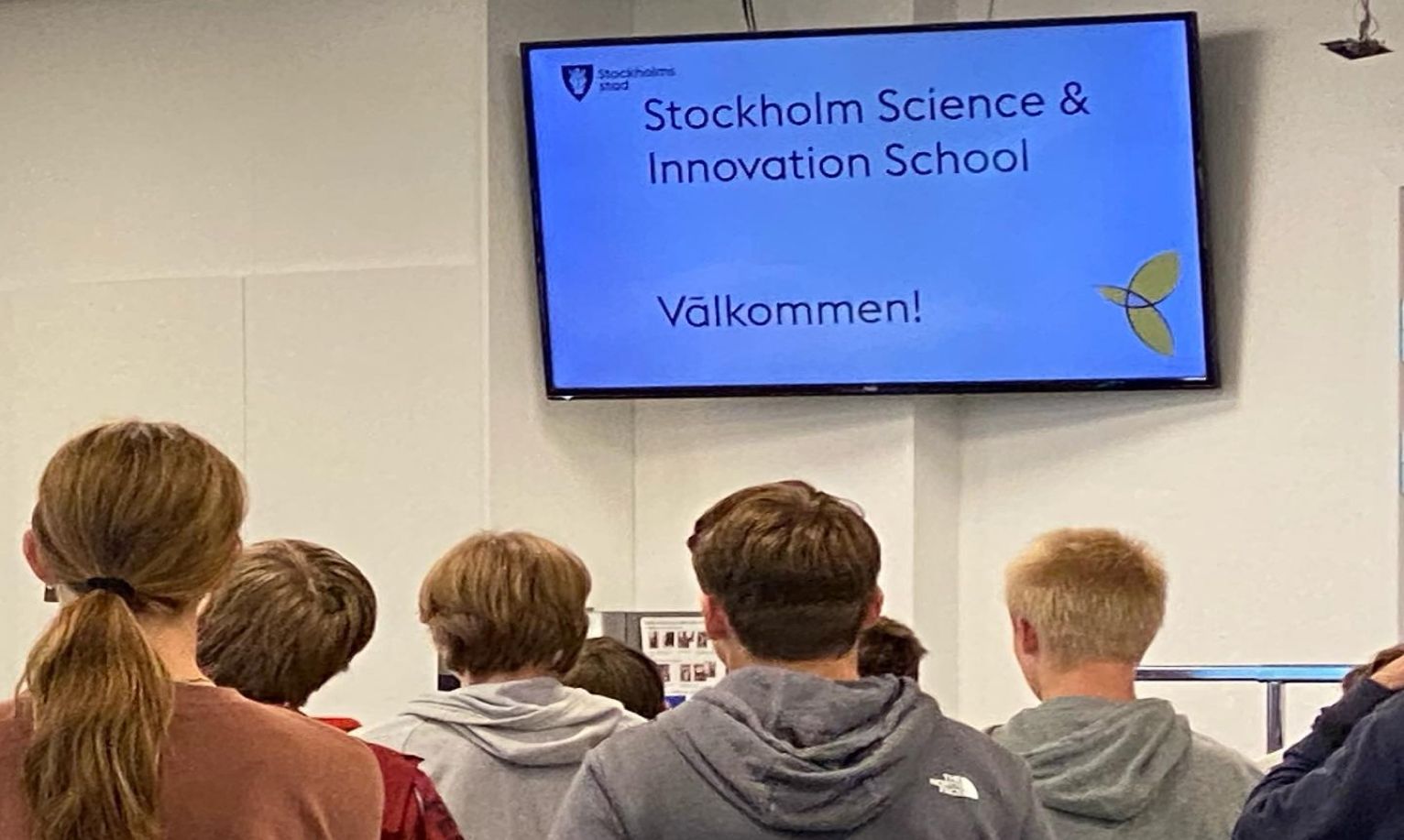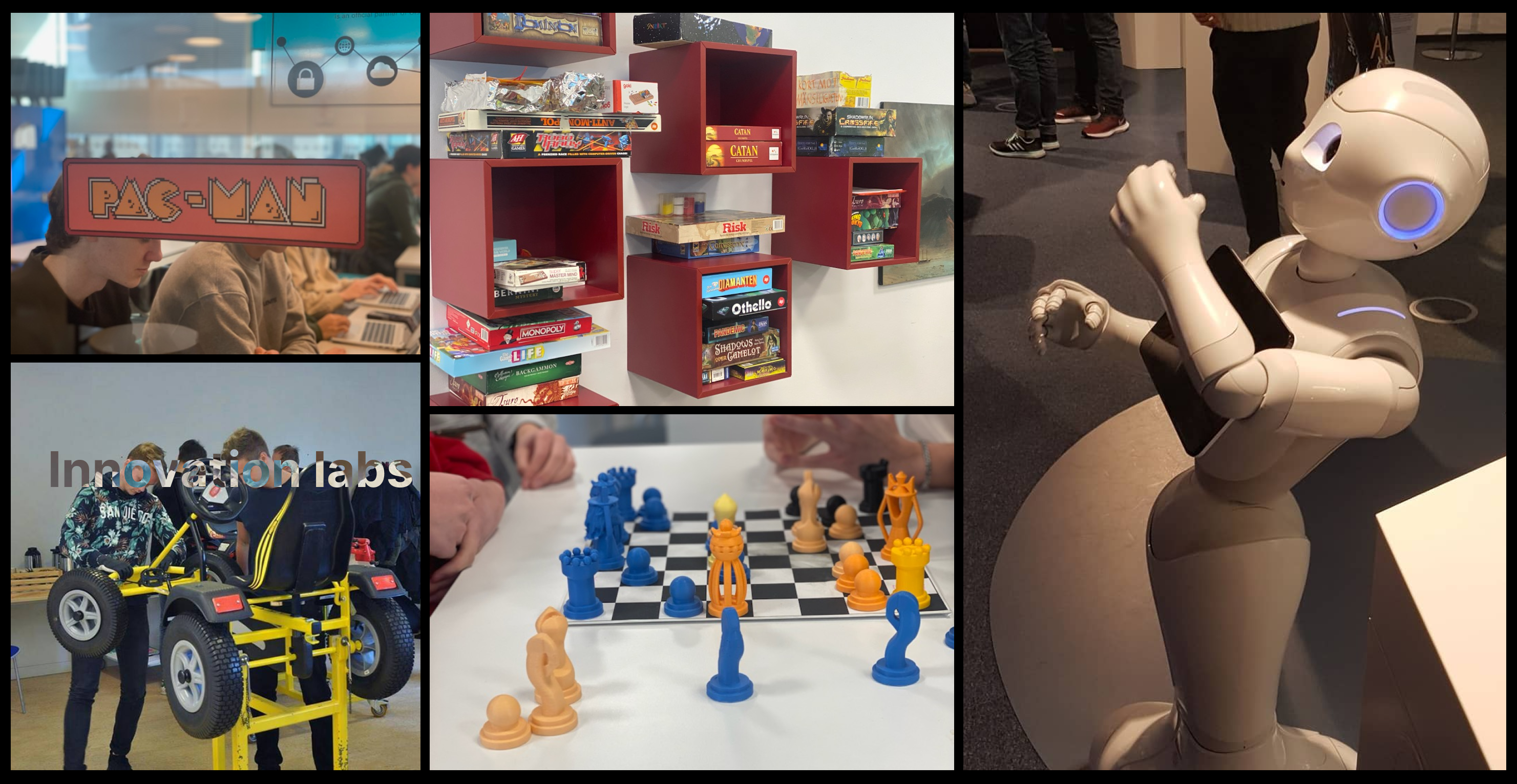Women Leaders in Education: An Interview with Stockholm School of Innovation and Science Principal, Anna Ternberg
Worldwide, women get fewer chances than men to participate in the economy, have less access to primary and secondary education in many parts of the world, are more at risk of health and safety issues, and have lower political representation. For example, according to a report by the National Center for Women & Information Technology, women make up only 25% of the workforce in the tech industry. This gap is even wider at the executive level, where women hold only 11% of leadership positions. Similarly, women comprise only 28% of the workforce in science, technology, engineering and math (STEM).
Looking at these figures, even today, women’s education and empowerment have become important topics in every field. We also see that there are so many obstacles in the way of a woman’s life. Despite all the barriers, women have reached the space, doing outstanding work in technology, education, film and many more. For this article, we have chosen to talk about the role of women leaders on Women’s International Day in the field of education.
Women in the field of education
🥳As we celebrate International Women's Day, it's essential to reflect on the incredible strides that women have made in the education field. From inspiring teachers to visionary principals, women have been at the forefront of shaping the future of education. But when it comes to celebrating the success of women leaders in the education sector, it has been relatively insignificant and too little has been told.
To gain insights into the experiences and perspectives of one such woman leader, we recently had the privilege of interviewing the principal, Anna Ternberg, of Stockholm Science and Innovation School (SSIS) - a school connecting technology and education. 👩
About Anna

Anna Ternberg is a well-respected educator who has made significant contributions to the field of education. As a principal of SSIS, she has been instrumental in transforming the school into a hub of innovation and academic excellence. In addition, Anna also worked with leadership training with a private company and several other schools during her career.
We have brought you the crux of the discussion with Anna, what it means to be a leader in the education industry, and what steps a leader should take to change the classroom experience for students and teachers. Let’s read what she says on some of the questions we asked her!
Could you please briefly introduce yourself and tell us about your journey, background, and role at SSIS?
My background is in the education sector. Both my parents were teachers. So I come from a teaching family and have it in my genes. My son, who's now 22, he's also studying at Stockholm University to become a teacher. Education and pedagogics were some of the questions we have discussed a lot at home during our breakfast and dinners. It's just what I did when I grew up, and education was the subject that we often discussed in the classroom. So, I've always somehow known that I wanted to teach. I have a degree in English and media communication. Also, leadership is another passion of mine as I worked for many years in an American company which is the world's largest enterprise for leadership.
You have been a teacher and a principal for about 29 years now. You would have witnessed how the role of technology in education has changed. How do you balance traditional teaching methods and modern teaching methods with the need to prepare students for a rapidly changing tech landscape?

I think it is crucial for a leader in education to strike a balance between traditional and modern teaching methods. On the one hand, modern teaching methods incorporate technology and innovation to enhance the learning experience; on the other hand, traditional methods are rooted in years of tested teaching practices. Exposing students to a mix of teaching methods encourages them to be adaptable and versatile learners, an essential skill in our rapidly changing world. At SSIS, some students don't know anything about tech when they come here. So, we have a lot of discussions about whether the teaching methods should be analogue or digital. But I think it's important to balance it out. Also, to be aware of the situations in the future because it could happen that we don't have the Internet one day, and then what do we do?
You are such a powerful, empathetic, change driver and still such a humble leader. Can you speak about the importance of female leadership in the field of education, and how your own experience as a woman in this field has influenced your leadership style?
To be a leader, you need to trust, empower, and believe in others. It's about building good relationships, no matter if you work at school, a hospital or a bank; it's all about trust.
It just does not happen overnight that your colleagues start believing in you. As a leader, I first need to prove myself on the job and keep my promises. For instance, just because I have a title and I'm the principal of SSIS doesn't mean I immediately deserve trust. I believe it's when people get to know me that I keep the promises that make them trust me. This is a fact that winning trust is necessary to perform better, and also, a leader should show their confidence in their colleagues to do their job and believe they can succeed. Sometimes you pick up things lying on the floor and the next minute you are working out a strategy in a meeting room.
What should a teacher do to keep-up the pace with the younger generation?

In this ever faster-moving technological world, it’s hard for teachers to cope with the next-gen. We must understand that young people today know so much more about tech than we do. The tech world is moving so fast, so as a teacher, we need to be humble and say, “Hey, you probably know more about this than I do”, so we can possibly keep up with the pace. So I think you also need to be very adaptable as a teacher and sometimes learn from the younger generation. We all are teachers in someway or the other.
Since we will publish this in accordance with the Women's International Day today. I just want to ask you what are the steps your school is taking to promote gender diversity and equality in the field of tech?
We have about 13% female students, which is not a lot. So it's definitely my mission to get more female students at SSIS, and I will not be satisfied until I have a 50:50 ratio. I don't see any reasons why women can't be in tech like men. Of course, they can, but what is it that's keeping them away? Well, I think it's the expectations from parents as well. And I believe that this is something that's going to take time to change. When it comes to gaming education, which is a very creative field, we don't see a lot of women applying. So this is something that constantly occupies my thoughts. We are working on marketing strategy to attract more women in tech.
SSIS is known to be such an innovative school! How do you incorporate programming and coding into your school's curriculum, and why do you think it's important for students to learn these skills?

I think it's important to learn new technologies. Because everything is about programming nowadays, that's the simple answer. You need to have these skills when it's moving so fast, and we need to prepare students for the future. Today tech and programming platforms like CodeEasy becomes extremely important in schools that use a very simple but interesting way of teaching programming through stories and soon through AI as well. I think we need to start at younger ages when you're in upper secondary school. perhaps, even earlier. For example, I can't code, but I would love to know how to code. So we need to put it into the curriculum for younger students. Introducing programming as a mandatory subject than bundled up with maths. And attract more females to try programming to take a step towards decreasing the gender gap in tech.
You have been travelling a long journey in the field of education. You have seen generation to generation of students? What are the challenges in the modern era, and how and what can we do to improve?
One of the challenges is that you can't be on your Mobile the whole day, even though it's fantastic to be so digital. I think young people are always on their phones today and get instant notifications all the time. And we need to work on prolonging and slowing down the pace so that it's not so instant.
Another challenge is that young people today have a lot of anxiety about what the future might hold. Some, for example, are very stressed with Stockholm's housing situation while others have high demands to perform and succeed. Students today are more stressed than I was in school because they compare themselves with others. They go on Instagram and say, "Ohh, that family went to this lovely skiing resort. I don't have that kind of money". They compare, like, "that girl is so beautiful, but I don't feel as beautiful as her", and then they feel bad about themselves. So it's quite a challenging time in many ways. At SSIS, to help students in these testing times, we have a student counsellor and a psychologist, as sometimes you need to talk to someone about how you're feeling. We all at the end of the day need a human touch and a hug.
What advice would you like to give young women out there who are interested in pursuing careers in tech or education in general?
“Just go out and grab what you like the most and make sure you do it joyfully. Just embrace tech and be courageous because there's nothing to be afraid of. Have fun on the way and enjoy it. I think it's important to see it as something very creative”.
Its not enough just to celebrate International Women's Day and the achievements of women. But let us also recommit ourselves to empowering women in all field, where women have historically been underrepresented. We can create a brighter future with gender equality by supporting and celebrating women leaders.
